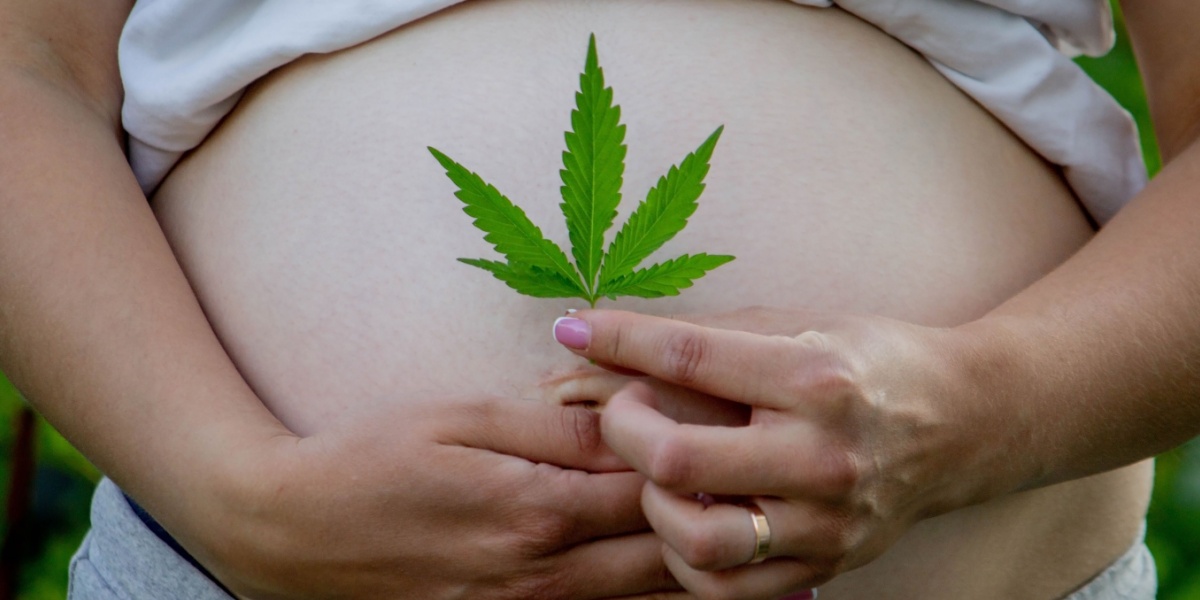In recent years, the number of pregnant people consuming or smoking cannabis has increased, which may be contributing to a risk of harm to the growing fetus and to the child’s mental, physical, and cognitive development.
- In the last two decades, increasing numbers of pregnant women have been smoking or using cannabis.
- Cannabis can cause risks to the fetus, including low birth weight, impaired cognitive development, and risks of withdrawal after birth.
- Alternative remedies are available to manage nausea during pregnancy, and treatments and advice are available to stop cannabis use.

Prevalence of cannabis use during pregnancy
Cannabis is the most commonly used illicit substance during pregnancy. Although cannabis laws vary by state, it remains illegal at the federal level. However, cannabis use has increased significantly across the country, particularly among pregnant people. [1][2]
The National Survey on Drug Use and Health (NSDUH) shows the following changes from 2002/2003 to 2016/2017: [3]
- Past-month cannabis use during pregnancy increased from 3.4% to 7%
- Past-month cannabis use during the first trimester increased from 5.7% to 12.1%
- Daily cannabis use in the past month during pregnancy increased from 0.9% to 3.4%
A commonly reported reason for cannabis use during pregnancy is to reduce nausea and vomiting. In states where cannabis is legal, nausea is an approved indication for medicinal marijuana, and it is found to be an effective remedy for this symptom. [1][4]
A study of 79 women who used medicinal cannabis and had been pregnant found that 68% (40 women) used cannabis to manage nausea and/or vomiting during pregnancy, and 92% (37) of these women reported it to be effective.
Understanding cannabis and its components
Cannabis is a plant that is smoked, ingested, or vaped to create a range of effects. The primary chemical compounds in cannabis are delta-9-tetrahydrocannabinol (THC) and cannabidiol (CBD). [5]
CBD and THC have varying and sometimes opposing effects on the brain and body. For example, THC can increase pulse rate, anxiety, sedation, and psychotic symptoms, while CBD causes none of these effects. CBD can also block or reduce some of the effects of THC, including anxiety, short-term memory problems, and psychotic symptoms. [5]
Studies have found that the potency of cannabis has increased over the last few decades. The concentration of THC in these products has increased significantly, which is thought to be linked to increased risks of emotional and cognitive concerns, such as psychotic disorders, depression, anxiety, and impaired memory. [5][6]
Can you smoke cannabis while pregnant?
It is not safe to smoke cannabis while pregnant. Chemicals in cannabis can cause serious risks to the fetus. Smoking cannabis while pregnant can increase the risk of stillbirth, preterm birth, low birthweight, and cognitive delays in the fetus. [1]
Potential risks of smoking cannabis during pregnancy and postpartum
There is growing research into the impact of cannabis on fetal and infant development.
During pregnancy
Cannabis use during pregnancy can impact fetal growth, cognitive development, and neurological health, as THC can cross the placenta. Additionally, research suggests that people who use cannabis during pregnancy may be more likely to use other substances, including tobacco, alcohol, and other illicit substances, which can further impact fetal health and increase risks. [7][8]
Prenatal exposure to THC can increase the risk of: [6][7]
- Restricted growth, causing low birth weight
- Preterm birth
- Impaired neurological development
- Increased risk of miscarriage or stillbirth (particularly in those who smoke tobacco and marijuana)
Impact from birth to adolescence
These risks can result in long-lasting impacts that can affect the child during critical development periods from birth to adolescence. For example: [6][9][10]
- Neonatal effects: In the first 30 days of life, babies exposed to THC exhibit signs of THC withdrawal, such as impaired responses to visual stimuli, abnormal crying, impacted sleep patterns, and increased shaking.
- Reward recognition: Prenatal exposure to THC can impact dopamine receptors, which may increase the risk of addiction later in life.
- Cognitive development: THC can impair the fetus’ brain development, which can cause issues later in life relating to memory, learning, and problem-solving skills.
- Breastfeeding: THC can pass into breast milk, meaning that breastfeeding infants can be exposed to its effects.
- Behavioral health: In childhood and adolescence, THC-exposed children show increased impulsivity, hyperactivity, attention deficits, behavioral issues, depressive symptoms, and psychosis.
Caring impairments
As well as the physiological effects on the baby, mothers or carers using cannabis may experience impairments in their ability to provide care. For example, being under the influence of cannabis could cause: [11]
- Missed cues from the baby relating to hunger, need for comfort, interaction skills, and learning.
- Impaired driving abilities, reaction time, and the ability to keep the child safe.
Alternative remedies for managing pregnancy symptoms
The most commonly reported reason for consuming or smoking cannabis during pregnancy is to manage nausea and vomiting. Other strategies to help manage this can include: [12][13]
- Eat little and often: Try eating a small amount regularly throughout the day if big meals worsen nausea. Avoiding food for long periods may cause nausea.
- Eat dry foods: Toast, crackers, or cereal can be easier to digest than other foods and contain a lot of carbohydrates, which will help increase energy.
- Carbonated drinks and teas: Fizzy drinks and herbal teas such as peppermint, ginger, and chamomile can help settle the stomach.
- Avoid fatty or greasy foods: Foods high in fat and cooked with an excess of grease can be difficult to digest and may worsen nausea.
- Avoid or limit coffee: Coffee can worsen nausea due to acid secretion.
Other ways to manage pregnancy symptoms and discomfort include: [12][13]
- Sleep: Getting plenty of restful sleep can help prevent fatigue. Soothing teas, massage, or baths can help with relaxation and improve sleep disturbances.
- Drink plenty of water: Hydration is particularly important during pregnancy and can help reduce constipation, fatigue, dizziness, and foot swelling.
- Massages: Massages can help reduce aches and pains in the back, feet, and legs.
- Gentle exercise: Engaging in regular exercise, such as walking, stretching, or prenatal yoga, can help improve physical and mental well-being, reduce pain, improve blood circulation, and reduce constipation.
What to do if you have trouble quitting marijuana during pregnancy
It may be helpful to seek professional advice and treatment when attempting to cut down and quit cannabis while pregnant.
Stopping cannabis can cause psychological and physical withdrawal symptoms, such as anxiety, sleep problems, and loss of appetite. Although withdrawal can be unpleasant, symptoms are unlikely to be severe or cause dangers to the mother and baby. A doctor can help reduce the impact of these symptoms by advising on safe medications, therapies, natural remedies, and holistic approaches. [14]



